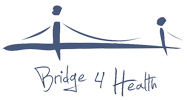By Jaskaran Dosange, Senior Project Manager of the Access Our Medicine Initiative
“Act as if what you do makes a difference. It does.” – William James
Every year 10 million people die each year because they can’t access the medicine they need. And it’s not just a developing world problem: in Canada, one in ten people cannot fill a prescription due to cost. Medicine prices are rising – cancer medications that used to cost hundreds of dollars in the 1980’s are now hundreds-of-thousands of dollars and the latest Hepatitis C treatment can cost $1,000 per pill.
Bridge for Health invited me to write this blog because access to affordable medicine is an equity and a sustainability issue. We need to find new ways to come together and tackle this complex issue by using multiple strategies and many voices.
The Access Our Medicine Initiative was launched in April 2014 inviting people to sign an online declaration with a simple statement – everyone should have access to affordable medicine. Since then, over 75,000 from over 160 countries and a diverse range of organizations representing more than 400 million people have signed the Declaration at www.accessourmedicine.com. Being a tiny team trying to make a big difference, we’ve been ecstatic to also have the support of leading health experts such as Julio Montaner and Stephen Lewis, in addition to celebrities like Sarah McLachlan and Richard Branson!

Often the issue of affordable medicine is one that seems too complex for most people to even think about but I often recall the reminder from Alison Lawton, the founder of Access Our Medicine Initiative, “If we have medicine to treat people but they can’t access them, then we need to make changes,” It’s as simple as that.
What we need is for individuals to realize that they have a voice in making these changes to make health for all a reality. People don’t know about the issue, are too ashamed to admit they can’t afford their medicines or too busy trying to recover and pay their bills to spend time talking about it. That’s why a crucial component of the Access Our Medicine project has been to make it a conduit for the public voice. As citizens armed with stronger communication tools than ever before, we can all contribute in giving a voice to this issue.
While access to medicine can be seen as a daunting issue, solutions exist. We’re continually inspired by the social innovations in health – from a scientist encouraging open source cancer research to a woman starting a non profit pharmaceutical company to an organization who distributes surplus medications to people who can’t afford them. There are so many people doing amazing things in this area that we’re convinced there has to be a better way than the current approach. Even organizations that are typically fragmented because of diseases and borders are coming together to unite on this particular issue. Organizations like the World Hepatitis alliance, AIDS HealthCare Foundation, European Parkinson’s Disease Association and the Canadian Federation of Medical Students are coming together to state that their patients need access to affordable medicine…now.
We’re hoping that 100,000 signatures will help influence the UN 2015 Sustainable Development Goals, which are currently being negotiated. There is no question that a strong show of public support can galvanize decision makers towards solutions that will make medicine affordable for all. We’re also starting to explore a series of public events designed to explore these issues in more depth and present opportunities for diverse partners to come together to secure public support for their solutions and engage the media to spark local and national conversations.
We’re on our way to 100,000 signatures and we’re inviting all of you to add your voices. USE YOUR VOICE. Please consider signing the Declaration CLICK HERE TO SIGN
and also share the link and use #AccessOurMeds to help spread the word!
– Jaskaran Dosange, Senior Project Manager of the Access Our Medicine Initiative
